easy tree to draw with tigers
No animal can quite compare to the majesty of a tiger. With its striking orange and black coloring and enigmatic presence, this big cat is one of the most beautiful creatures in the world. Although it may seem daunting to try and render this striped feline on your own, you'll see that with a little bit of patience and some illustrated guidance, you too can draw the tiger of your dreams.
In this tutorial, we will go through the steps of sketching a tiger walking through a forest. Ready to give it a go? Then grab your drawing supplies and some paper—it's time to draw a tiger!
Learn How to Draw a Tiger in 10 Steps
Step 1: Do your research
Before we begin drawing, it's important to set aside some time to familiarize yourself with tiger anatomy. Even if you've drawn other big cats, like lions and leopards, there are a few differences to take note of when drawing the striped feline. In particular, remember that tigers have long, muscular bodies with powerful legs. Additionally, it's helpful to look at the different subspecies of tigers and choose one as your model.
This tutorial will be focusing on how to draw a Siberian tiger.
Step 2: Draw the basic shapes

Art: Margherita Cole | My Modern Met
To begin, we're going to draw the basic shapes for the tiger. You'll want to make one small circle for the head, a larger circle for the chest, and a little further down, another mid-size circle for the hindquarters.
Step 3: Connect the shapes

Art: Margherita Cole | My Modern Met
Next, connect the shapes you've just drawn until you have a long body.
Step 4: Add the ears and muzzle
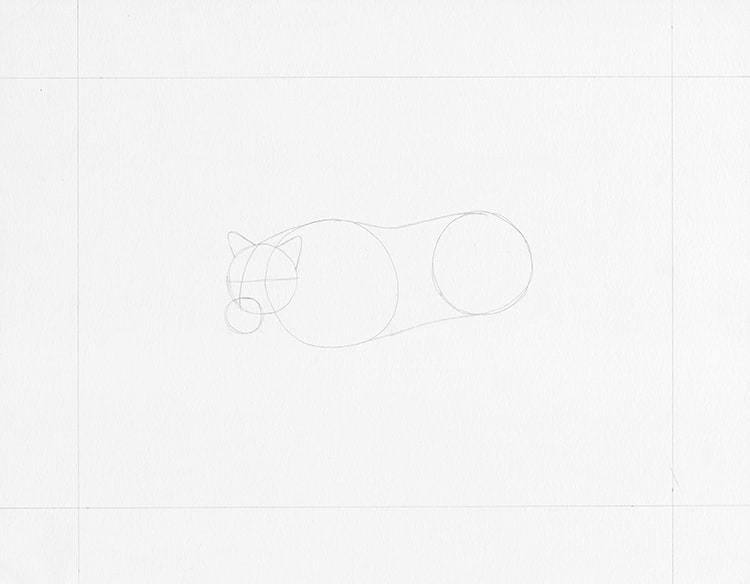
Art: Margherita Cole | My Modern Met
Now, we'll turn our attention to the head, and add a pair of triangle-shaped ears to the top of the circle and a smaller circle to the bottom. If you want, you can also lightly sketch some guidelines at this point to indicate where the facial features will go, but it's not necessary yet.
Step 5: Sketch the legs
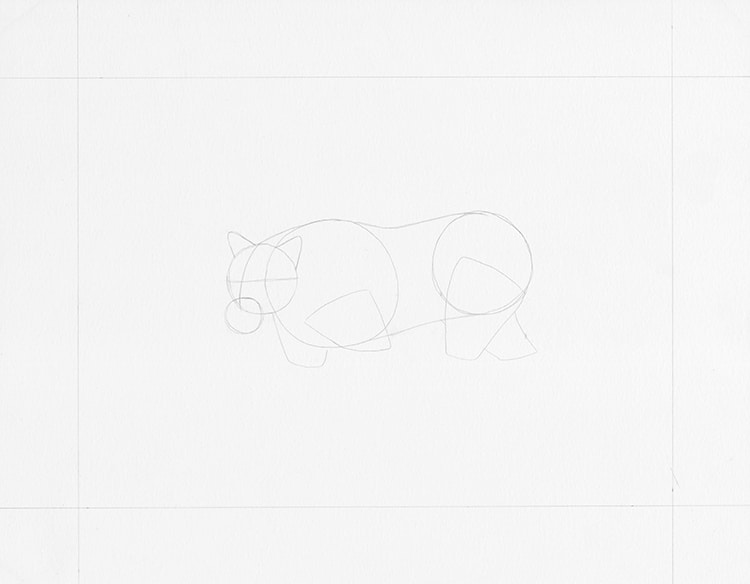
Art: Margherita Cole | My Modern Met
Turning our attention to the tiger's body again, it's time to draw the legs. Begin by sketching the upper part of the forelimbs and hind legs as thick rectangular shapes. Then, connect the lower legs at the joints, ending at large rectangular paws. Keep the legs fairly thick, as tigers are muscular animals with heavy coats of fur.
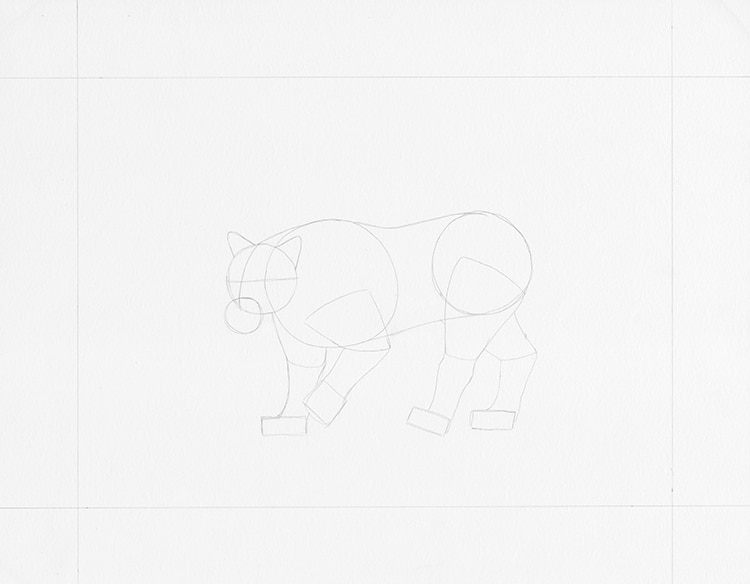
Art: Margherita Cole | My Modern Met
Step 6: Add detail to the face
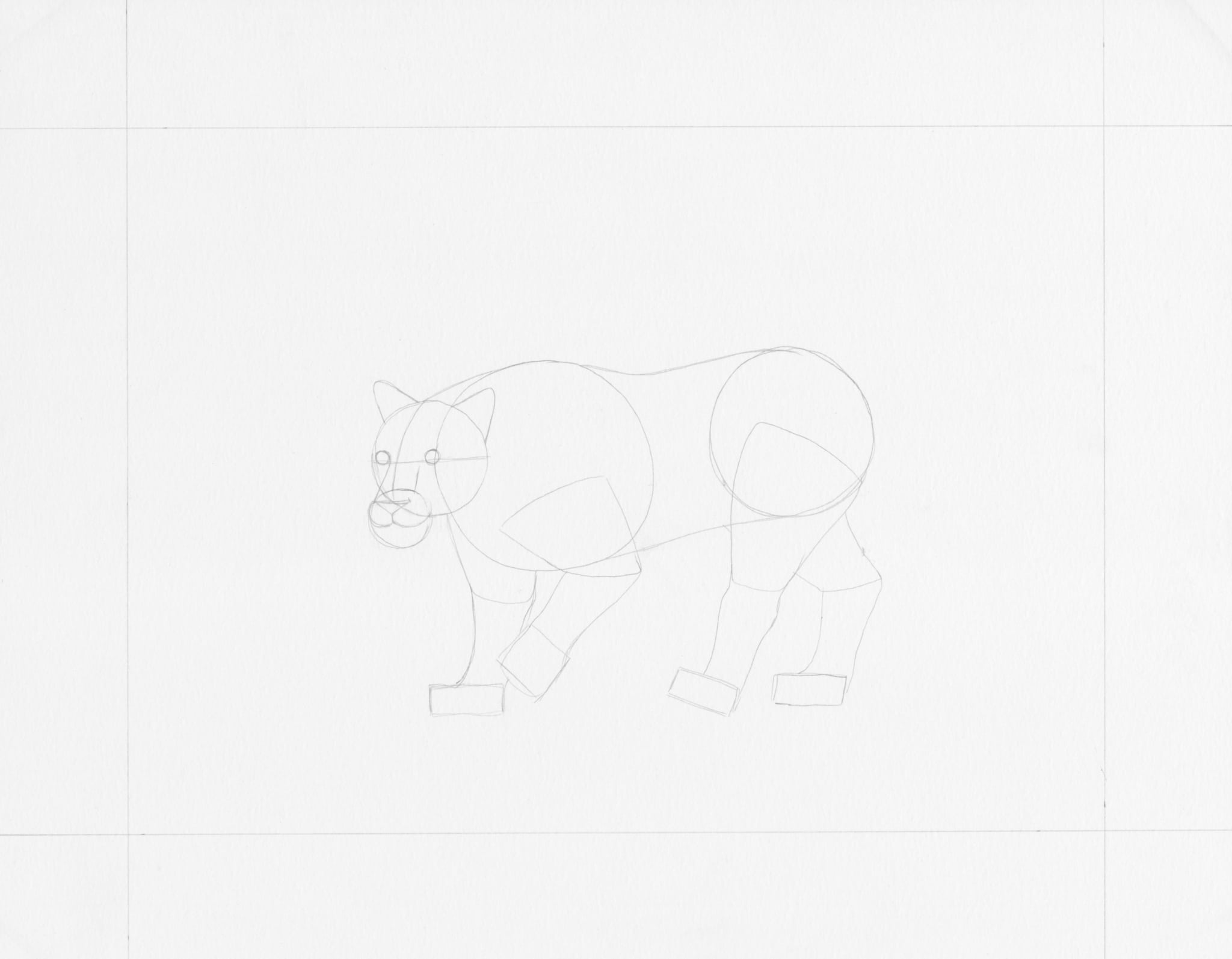
Art: Margherita Cole | My Modern Met
With the legs in place, it's time to go back to the head and fill it in with more detail. First, lightly sketch a pair of small circular eyes. Then, using the eye that is further away, draw the bridge of the nose, ending at the muzzle. There, add a triangle-shaped nose and two whisker pads. In this drawing, the tiger has its mouth open, so below the nose, sketch a rectangular-shaped jaw. Remember to add a bit of fluff to the sides of the head as well.
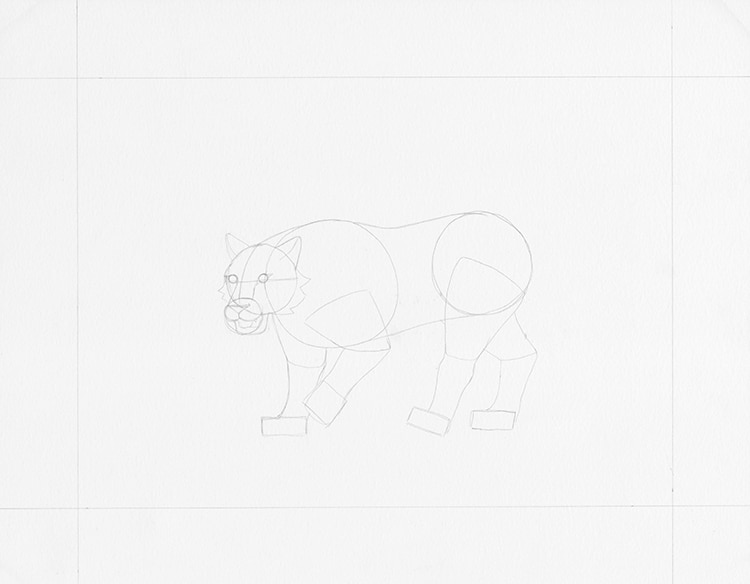
Art: Margherita Cole | My Modern Met
Step 7: Give the tiger more definition

Art: Margherita Cole | My Modern Met
At this point, we've drawn all of the elements, so it's time to give our tiger more definition. Starting from the top, find the shoulder blade of the tiger, and raise it up a bit to show that it is in movement. Add a long curling tail behind the rear legs and sketch the individual toes in the tiger's paws.
Step 8: Erase the guidelines
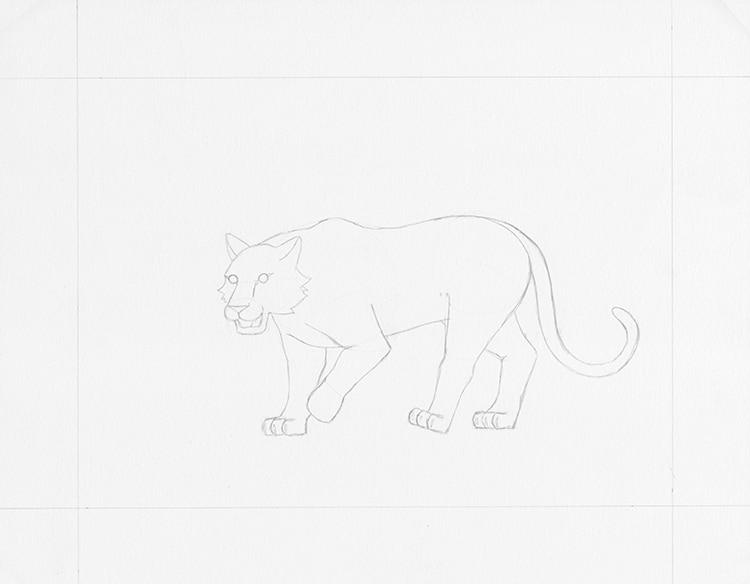
Art: Margherita Cole | My Modern Met
Once you're satisfied with your basic sketch, go ahead and erase any unnecessary marks until you have a clean outline of your tiger.
Step 9: Add the stripes
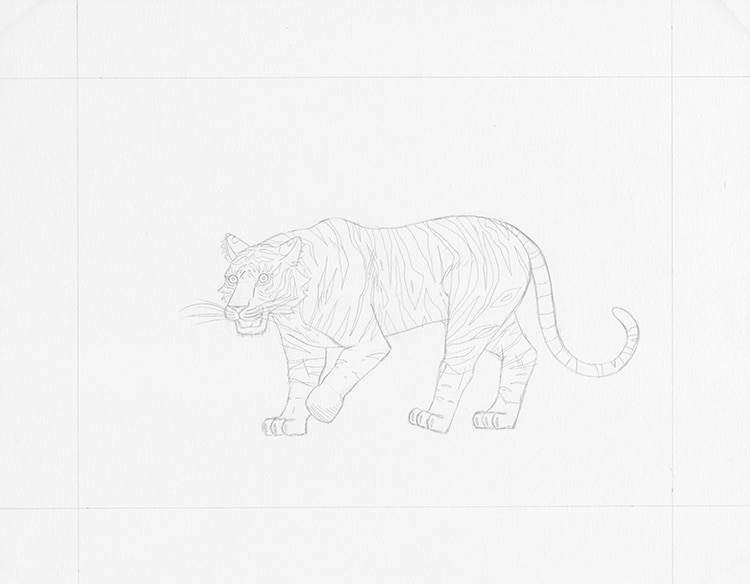
Art: Margherita Cole | My Modern Met
Finally, it's time to jazz up your tiger drawing with what makes these animals so special—stripes! Although it may be tempting to try this freehand, there are actually some basic patterns to follow, so be sure you have a few reference photos of tigers handy. Remember to keep the stripes around the head shorter, and the ones on the body fairly long. You'll notice that in most tigers, the stripes also become thicker as they get closer to the hindquarters.
Optional: Draw a background
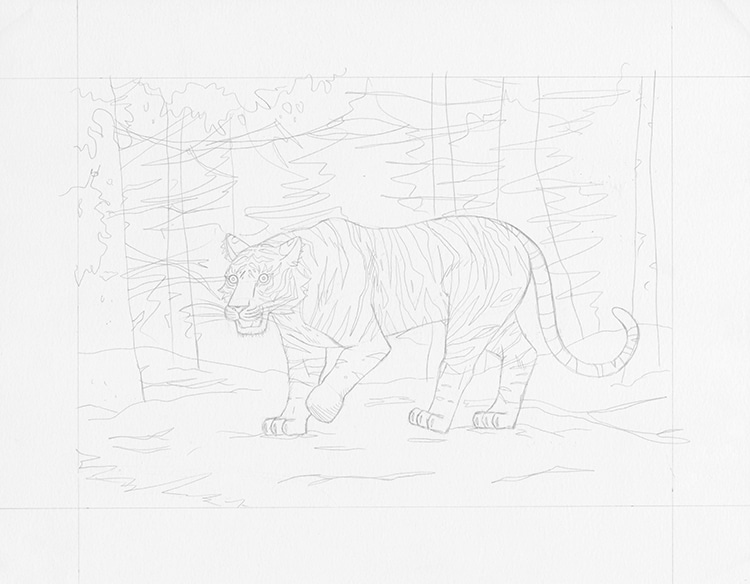
Art: Margherita Cole | My Modern Met
If you're putting in the effort of drawing a noble tiger, why not make it a complete illustration by giving it a background? It's a great way to give your animal a story. In this example, the tiger is walking through a snowy forest, so I've added a sloping horizontal line and a variety of trees in the back. Depending on what species of tiger you've decided to draw, you might want to change the vegetation accordingly.
Step 10: Go over the drawing in ink
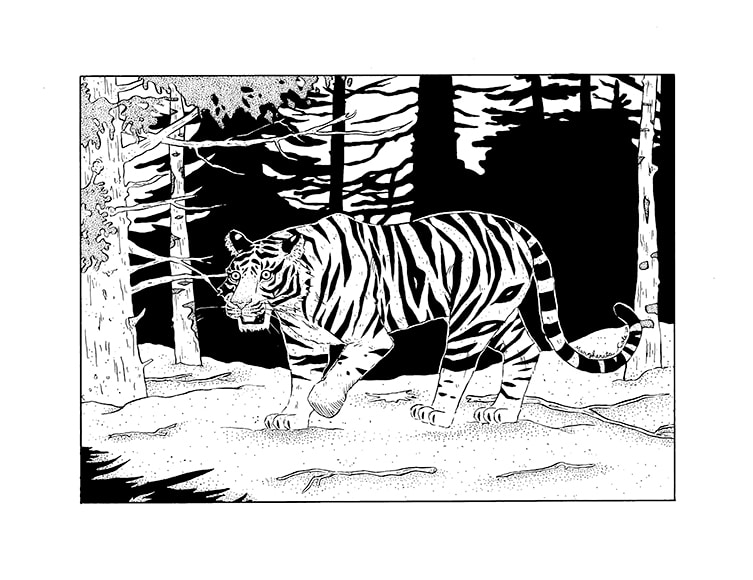
Art: Margherita Cole | My Modern Met
Finally, it's time to go over our drawing in ink. Place a scrap of paper under your drawing hand and slowly go over the sketch with a pen. Once you've gone over all of the marks, you can begin filling in the stripes and other select areas with black. It's important to leave this step until last, otherwise, you risk smearing the ink. Afterward, if you feel as though your drawing is still in need of more texture, add some stippling or hatching to certain areas—like beneath the tiger's paws, around the nose, near the trees, etc.
After you've finished, you can either add color to the composition or leave it as is for a striking black and white illustration of a tiger!
Looking for others who love drawing? Join our Art, Design, Photography, and Drawing Club on Facebook!
Related Articles:
Learn How to Draw a Lion in 7 Easy Steps
Learn How to Draw an African Elephant in 7 Simple Steps
Learn How to Draw a Wolf Howling at the Moon Step by Step
Learn How to Draw a Horse Head From 3 Different Angles
Source: https://mymodernmet.com/how-to-draw-a-tiger/
0 Response to "easy tree to draw with tigers"
Post a Comment